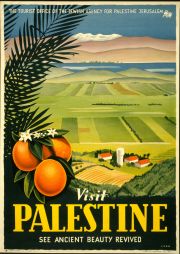14th THESSALONIKI DOCUMENTARY FESTIVAL - Images of the 21st Century
March 9 – 18, 2012
EYAL SIVAN TRIBUTE
One of the most creative, intellectual and political Israeli filmmakers of his generation, Eyal Sivan, born in Haifa in 1964, has centered his work and career on contemporary Israeli identity and the Israeli-Palestinian conflict –his films cover various subjects, but they are united by a distinct (and controversial) opposition against his country’s policies.
The 14th Thessaloniki Documentary Festival will screen 7 out of Sivan’s total 19 works (feature, short and TV documentaries and other media projects), while Common State, his latest film, will hold its World Premiere during the event. The director will attend the Festival to present his films and discuss them with the Festival guests and audience.
Sivan, who currently serves as co-director of the MA program in Film, Video & New Media at the University of East London, started his career as a fashion photographer, but turned to writing and documentary work in the mid 80s. In 1985 he left Israel and moved to France. He directed his first film Aqabat Jaber: Passing Through in 1987: he crossed a geographical, political and philosophical border to film in the Aqabat Jaber Palestinian refugee camp in the West Bank, created by the UN in the 50s. He recorded the stories of people living -essentially in limbo- for decades, showing their plights, for what became a poignant film with a unique perspective (in 1995 he returned to film the evacuation of the region by the Israeli army). The documentary won the Grand Prize of the Festival du Reel in Paris, but also marked the beginning of an uneasy relationship between the filmmaker and a significant portion of the Israeli citizenry, press and status quo.
 With Izkor, Slaves of Memory (1990), essentially a discourse on Israel’s collective memory and how it may be used to justify its modern politics, Sivan’s views are eloquently echoed by Professor Yeshayuh Leibowitz, one of the foremost Israeli intellectuals. The Specialist: Portrait of a Modern Criminal (1999) again outraged his critics, as Sivan re-edited (in an epic feat of montage) the footage from the trial of Adolf Eichmann and reconsidered it under the light of Hannah Arendt’s book Eichmann in Jerusalem: A Report on the Banality of Evil (1963) – with its intelligent use of overlapping voices, the film is riveting and unsettling. In 2004, Route 181: Fragments of a Journey in Palestine-Israel, co-directed with Palestinian filmmaker Michel Khleifi and tracing the route of the 1947 UN Partition plan, was censored by the French Ministry of Culture and was pulled out of the Festival du Cinema du Reel as “a risk to public order”. I Love You All (2004) provides an account of the terrible distortions of power coupled with blind faith, via the testimony of Mr. B, a “public servant in service of the people", in reality, a Stasi officer. The powerful historical document serves as an allegory for the Israeli regime, much as the oranges in Jaffa, the Orange's Clockwork (2009), about the appropriation of the originally Palestinian fruit and its image, provide a concrete metaphor for the conflict itself. Jaffa, the Orange’s Clockwork was screened during the 13th Thessaloniki Documentary Festival in 2011 and was very well received by the audiences and the critics.
With Izkor, Slaves of Memory (1990), essentially a discourse on Israel’s collective memory and how it may be used to justify its modern politics, Sivan’s views are eloquently echoed by Professor Yeshayuh Leibowitz, one of the foremost Israeli intellectuals. The Specialist: Portrait of a Modern Criminal (1999) again outraged his critics, as Sivan re-edited (in an epic feat of montage) the footage from the trial of Adolf Eichmann and reconsidered it under the light of Hannah Arendt’s book Eichmann in Jerusalem: A Report on the Banality of Evil (1963) – with its intelligent use of overlapping voices, the film is riveting and unsettling. In 2004, Route 181: Fragments of a Journey in Palestine-Israel, co-directed with Palestinian filmmaker Michel Khleifi and tracing the route of the 1947 UN Partition plan, was censored by the French Ministry of Culture and was pulled out of the Festival du Cinema du Reel as “a risk to public order”. I Love You All (2004) provides an account of the terrible distortions of power coupled with blind faith, via the testimony of Mr. B, a “public servant in service of the people", in reality, a Stasi officer. The powerful historical document serves as an allegory for the Israeli regime, much as the oranges in Jaffa, the Orange's Clockwork (2009), about the appropriation of the originally Palestinian fruit and its image, provide a concrete metaphor for the conflict itself. Jaffa, the Orange’s Clockwork was screened during the 13th Thessaloniki Documentary Festival in 2011 and was very well received by the audiences and the critics.
Sivan’s films constantly delve deeper into his country’s history and the Israeli-Palestinian conflict with its many facets, in search of a plausible and novel solution. They have garnered awards and praise, and stirred controversy in equal measure. Because of their subjects and the director’s viewpoint, discourse on his films tends to veer towards the political and, in lesser degree, the social and the historical. It needs to be noted, however, that significant components of his work are the technical, creative and cinematic ones, which make even the most academic subjects gripping: his imaginative editing, his interviewing skills, the subtlety of framing and the skilled use of archival material.
THE FILMS:
Common State, 2012 (info TBA at a later date)
Jaffa, the Orange's Clockwork (Jaffa, le mecanique de l' orange), 2009, Israel/France/ Belgium /Germany, 88’
I Love You All (Aus liebe zum volk), co-directed with Audrey Marion, 2004, Germany/France, 89’
Route 181: Fragments of a Journey in Palestine-Israel (Route 181: Fragments d'un voyage en Palestine-Israel), co-directed with Michel Khleifi, 2003, France/Belgium/Germany/UK, 272’
The Specialist: Portrait of a Modern Criminal (Un specialiste: portrait d' un criminel moderne), 1999, France/Israel/Austria/Germany/Belgium, 128’
Izkor, Slaves of Memory (Les esclaves de la memoire), 1990, France/Israel, 97’
Aqabat Jaber. Passing Through (Aqabat-Jaber: Vie de passage), 1987, France, 81’
ANGELOS ABAZOGLOU SPOTLIGHT
Abazoglu studied Film and Theater at the National Institute of the Performing Arts in Brussels and started his career as an actor, but soon turned to documentaries, directing films for ZDF, ARTE and PBS. His work has enjoyed both critical and commercial success in Europe; Murder at the Agora was viewed by a TV audience of more than a million and won the Prix Europa of 2006. The film, which brings to life the beloved characters of Petros Markaris’ crime novels, blurs the boundaries between reality and fiction and vividly records the various contradictions of contemporary Greek society. Among the six films to be screened in Thessaloniki, Tomorrow Things Will Be Better (1996) explores the relationships between people of different origins who have moved away from their homes to seek a better life, while Olive Oil, Water and Tomato (1998) creates a mosaic of cultures (Greece, Spain, Tunisia, Egypt) through the sense of taste and the art of cooking.
 Abazoglou’s latest film, Mustafa’s Sweet Dreams, which will be screened at the 2012 Berlin and the 2012 SXSW Film Festivals, is about a young apprentice in a sweet shop in Gaziantep, who dreams of moving to Istanbul and becoming a master in his sugary craft. Gaziantep, located in southeast Turkey, is the birthplace of pistachio baklava and is famous for its ancient baking customs, where Byzantine, Greek and Ottoman histories converge and tradition is always of the utmost significance. The film will be screened during the 14th TDF and Abazoglu will attend the Festival to present his work.
Abazoglou’s latest film, Mustafa’s Sweet Dreams, which will be screened at the 2012 Berlin and the 2012 SXSW Film Festivals, is about a young apprentice in a sweet shop in Gaziantep, who dreams of moving to Istanbul and becoming a master in his sugary craft. Gaziantep, located in southeast Turkey, is the birthplace of pistachio baklava and is famous for its ancient baking customs, where Byzantine, Greek and Ottoman histories converge and tradition is always of the utmost significance. The film will be screened during the 14th TDF and Abazoglu will attend the Festival to present his work. THE FILMS:
Mustafa’s Sweet Dreams, 2012, Greece/UK, 83’
Welcome to Greece, Mr. Marshall , 2007, Greece/France, 55’
Murder at the Agora (Eglima stin Arhaia Agora), 2006, Greece/France, 57’
Sir Basil Zaharoff, Agent of Death (Vassilis Zaharoff, o mistiriodis Ellinas tis Evropis) 2006, Greece/Germany, 52’
Tomorrow Things Will Be Better (Ta 2 Avrio), 1998, Greece/France, 70’
Olive Oil, A Little Water, A Peeled Tomato... (Elaiolado, ligo nero, mia ksefloudismeni ntomata) 1997, Greece/France, 27’
















